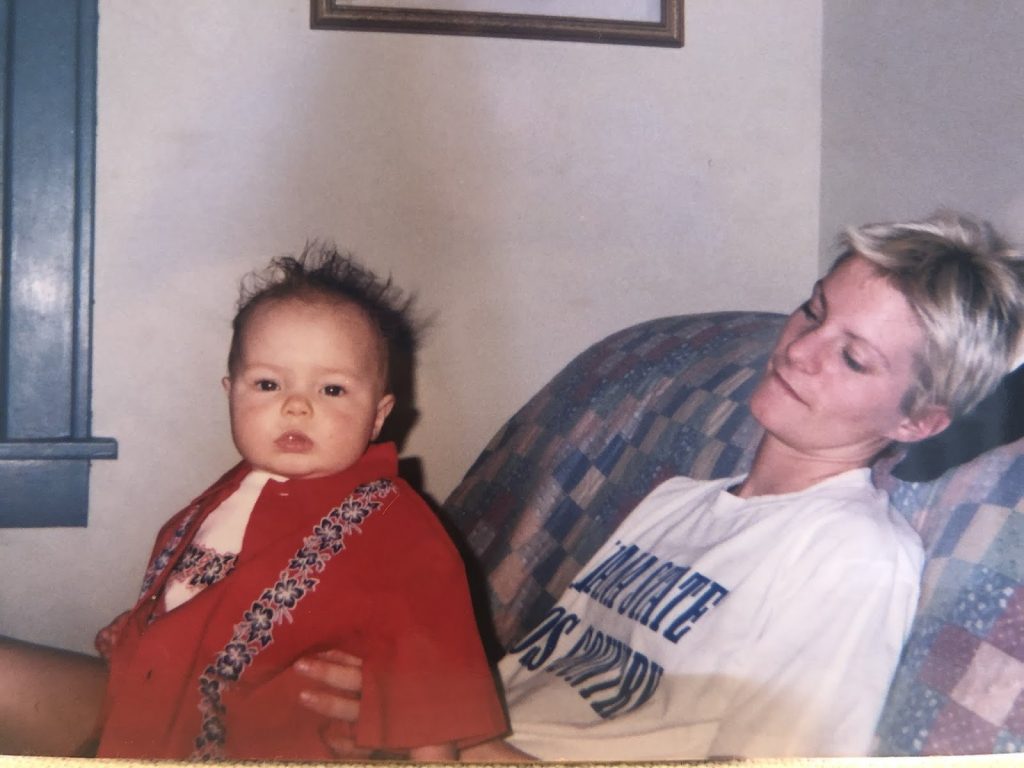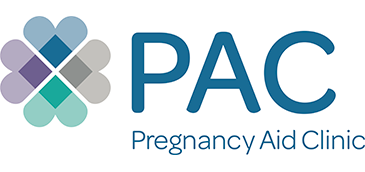by Annie Gasway
In January 2000, I was 21. I was on a half-ride athletic scholarship (track and cross country) at a Division I university. I was not only Team Captain but also the number one runner. I had everything going for me (and therefore everything to lose). I knew that, so I took precautions to avoid unwanted pregnancy.
But during indoor track season I could run a mile in just above 5 minutes, which was my time for mile repeats just a few months prior. It didn’t make sense. My coach sent me to get tested for anemia, which is how I learned I wasn’t anemic, but I was pregnant. 10 weeks pregnant.
At this point in my life, I was vocally pro-choice. I had friends and rivals who had procured abortions so their athletic careers weren’t hindered by surprise pregnancies. Now it was my turn to consider my options. Instead of returning to my (then) fiancé’s apartment, I drove to a park, sat in my car, and cried. Now that I had to face abortion head on, I couldn’t continue my comfortable lie that a fetus was just a “clump of cells.” I knew there was a tiny human growing within me. Abortion would mean ending my child’s life. I knew this as an objective, undeniable, scientific fact. Another scientific fact: I could not remain competitive at the Division I level much longer. I was in the middle of a moral dilemma, and it quickly dawned on me that I may not really have much of a choice at all.
My Division I coach had full power over my future. He could pull my scholarship at any time for any reason. [Editor’s note: Title IX specifically prohibits discrimination against pregnant athletes. When we asked Annie about this factor, she explained that their required student athlete course did not mention that information, and she wasn’t aware of that protection at the time she was pregnant.] I knew most coaches pulled scholarships for any “injury” that would take an athlete out of competition for an entire season. Even though the athlete could “redshirt” (sit out) and get the season back later, coaches usually had walk-ons who were talented enough to score points now. Coaches could free up money to give to a “healthy” athlete. As I weighed my options I realized that my rivals who had abortions may not have wanted them. I knew I couldn’t finish my degree without my scholarship. I figured without a degree I didn’t have much of a future. If my friends and rivals’ situations were like mine, and if their coaches threatened to take their scholarships if they chose to stay pregnant, they didn’t have the luxury of choice—the choice was made for them by men with power over their lives. This thought terrified me.
I went back to my fiancé’s apartment and told him. He was also on an athletic scholarship for track. I begged him to go with me to tell our coach; even he was terrified to reveal our pregnancy, but I had to find out if I could keep my baby and my scholarship. I wasn’t going to kill another human on an assumption that I might lose a scholarship.
Turns out I was lucky. My coach didn’t give me an ultimatum; I redshirted my outdoor season, came back the following year, and provisionally qualified for NCAA Nationals in steeplechase [3.000 meter race], my very first race back. I got to keep my scholarship, earn my degree, and have my baby.

This experience made me pro-life. I realized that abortion is weaponized against women. Those in authority—those with the purse strings—can treat pregnancy as an illness and abortion as its cure. I realized women with wanted pregnancies may be manipulated into ending them, and as long as abortion is available “on demand” it will be used to control and manipulate women.
This problem trickles into accommodating difficult pregnancies as well. During my second pregnancy I required strict bedrest. I was teaching full-time, and when I asked my principal for paid leave, he said, “We consider what you are asking for to be ‘maternity leave,’ which we deem a personal choice, and so we do not compensate for it. Now, if you had cancer or something and required extended leave you could take it from the leave pool.” He knew I had just been released from the hospital with a prescription for strict bedrest, but since staying pregnant was my “personal choice” my employer saw no obligation to support me. At that point I was the primary breadwinner for our family because my husband was finishing his degree. We ended up going deeply into debt to pay our bills so we could have our second child. “My body my choice” isn’t true. Even if there is a choice, it is often not made by the woman.
There is a manufactured choice between poverty and motherhood, and abortion on demand makes it so, enabling society to treat pregnancy as a chosen “disease.” Women often aren’t making the choice they want to make. They are making a “Sophie’s choice” based on circumstance forced on them by those who have power over their destiny. It’s pretty easy to put a woman in that position when the people pushing it aren’t the ones who pay the price for it (and in fact will benefit from it). If women lack support for their pregnancies, the solution should be to create that support, not push them to end their pregnancies. I am pro-life because I am pro-woman.
Originally published on Secular Pro Life on April 21, 2020
